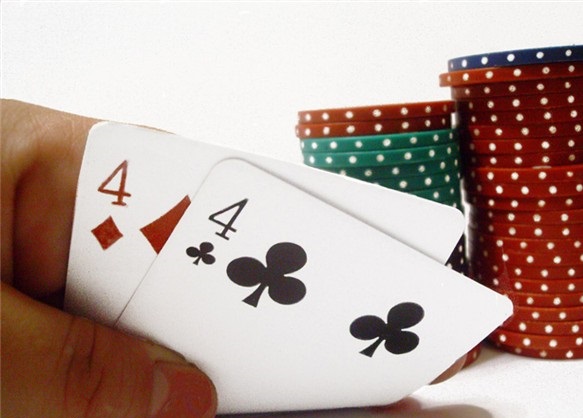Common Mistakes Beginners Should Avoid in NL Hold’em

Texas Hold’em is a game that takes a few minutes to learn and a lifetime to master. That common phrase about the game highlights the fact that we all will make mistakes at the poker table.
With that said, there are many mistakes that are avoidable. A couple of years ago, I spoke with several top pros who shared common mistakes that beginning NL Hold’em poker players should avoid.
Overplaying a Weak Suited Ace
Josh Brikis presented a common situation that beginners, and sometimes even more experienced players, overplay their hand. He explained, “Calling a raise with a low suited ace and then getting stuck in the hand after flopping an ace is a common mistake that I see beginners make.”
A low suited ace, aka a weak ace, is any suited ace below A-9. Players commonly play this type of hand in the hopes of flopping at least a flush draw. Problems with this hand develop when they only catch an ace on the flop and begin calling or raising bets from their opponents.
An ace in this situation is easily dominated, so you need to be careful. A weak suited ace can be played in late position when the pot has not been opened, but be careful if you flop an ace and begin to see resistance.
Overplaying Small Pairs Pre-Flop
Jonathan Jaffe presented a pre-flop problem that many beginners experience. He told me, “Preflop, I would say that calling three-bets with 22-77 is a common mistake beginners make.”
Calling a raise pre-flop in the hopes of flopping a set, aka set mining, is a common play. However, some players get into the habit of calling three-bets or worse with a small pair. WSOP Europe Champion Annette Obrestad once said that she commits no more than 10 percent of her stack to set mine.

Many beginners overplay small pairs.
While it is true that more experienced players can three-bet with hands worse than your small pair, many players will not put in that second raise without a strong hand.
Not Letting Go an Absolute Value Hand
Pro and poker coach Aaron Jones presented a situation that most of us have experienced. As he explains, “A common situation I see is when you have a strong absolute value hand but the board runs out badly.
For example, when you have a set and the board runs out four to a straight or flush. Players get mad when they have a good hand on an earlier street, it loses values and they fail to fold.”
Players will tend to stick with these hands in cash games more often than in tournaments because they can simply reload. It doesn’t matter the situation as it is still a bad play.
Underplaying Their Hands
Kevin Vandersmissen is a live and online poker tournament expert and shared a mistake he frequently sees from players who hit a hand but are afraid to bet. He explains, “There are players that undervalue their top pair or sets and are afraid to put in value bets. They are afraid that the other player might have a better hand or bluff them off theirs. Those types of players will have a hard time getting deep into a tournament because they will never have a big stack.”
For example, you have a hand like A-K and flop a pair of kings. Players that underplay their hand will often check or check-call on all streets. Sometimes they are afraid of betting players out of the pot, or they may simply lack aggression.
Mistakes Not Just Common to Beginners
When I spoke to the pros about these mistakes, we focused on beginning players. However, there are many experienced players that still make these mistake, especially overplaying small pairs pre-flop.
Often, players try and justify these mistakes based on the tendencies of the table or trying to build a big stack early in a tournament. Unfortunately, these tendencies lead to long-term losses and bad habits can be hard to break.
By avoiding these mistakes early in your career, you’ll give yourself the best chance to always play your “A-game.”
